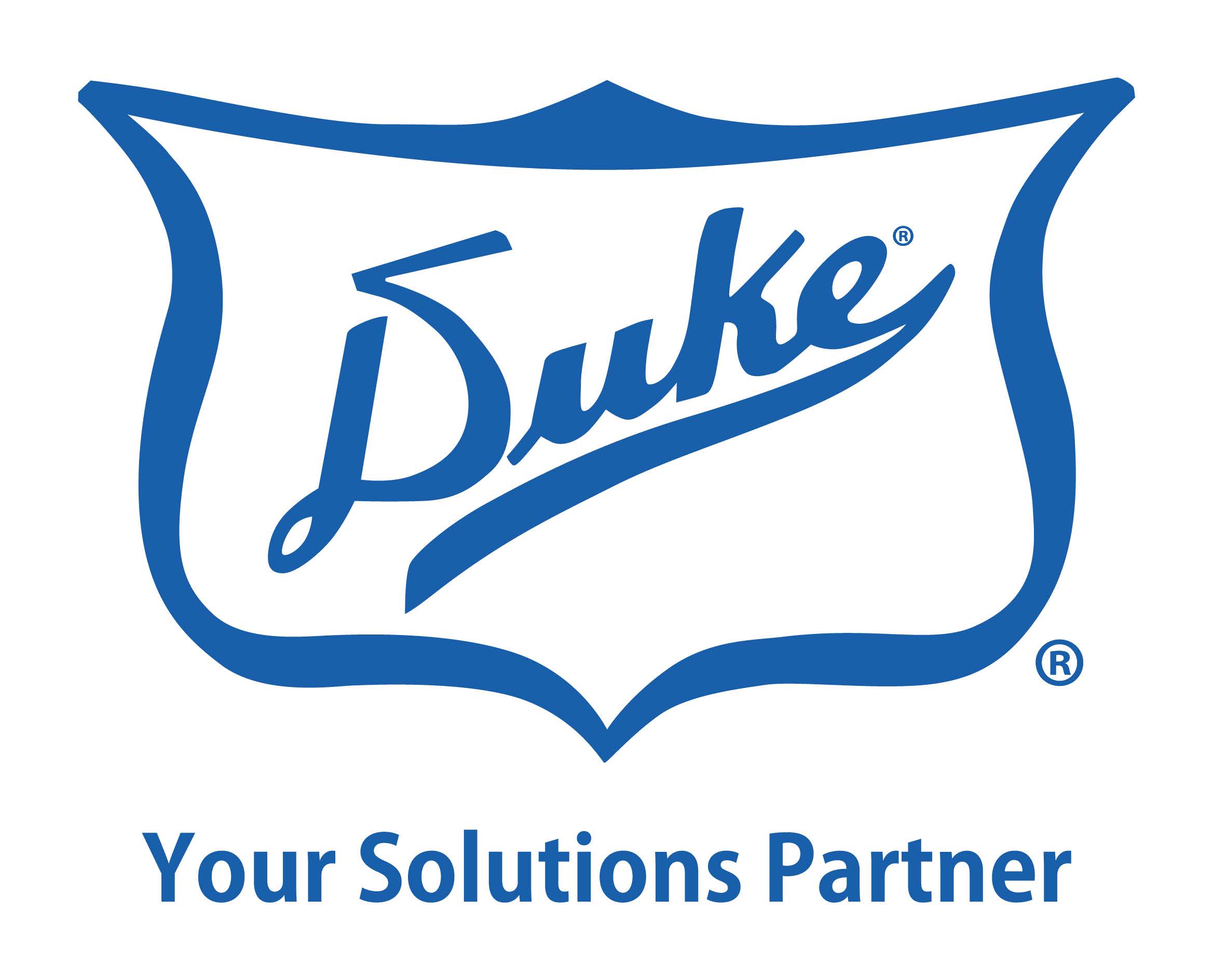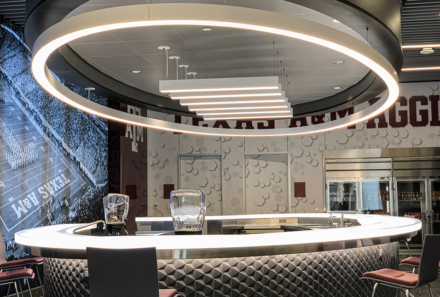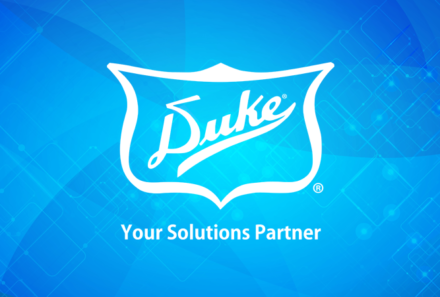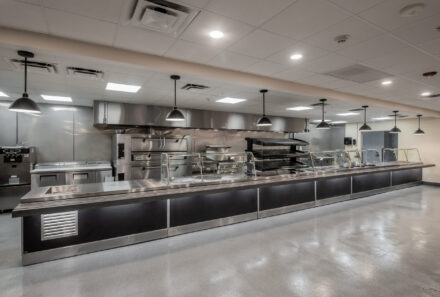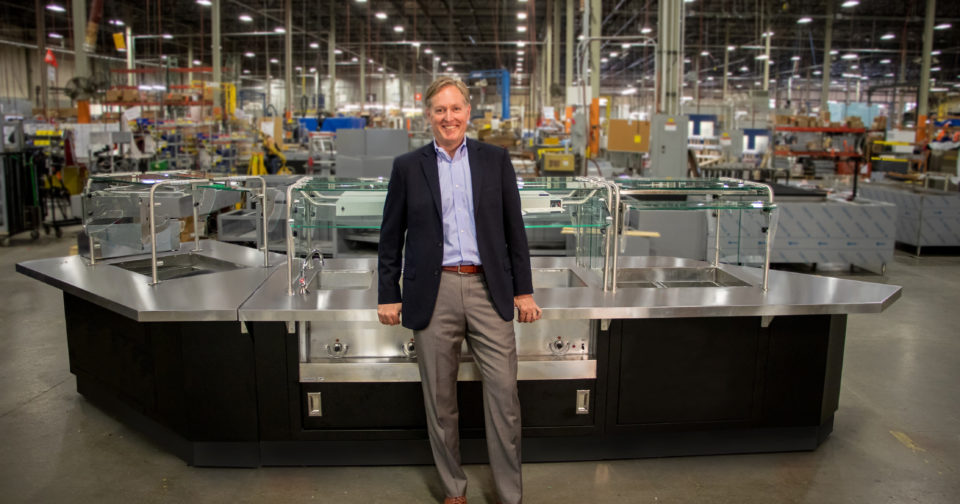
Titans of Industry: Duke Manufacturing
David Marvel, president and COO at Duke Manufacturing Co., tells Michael Jones how his company is pioneering a “frictionless experience” for customers
It becomes immediately clear when meeting David Marvel, president and COO at Duke Manufacturing Co., that thinking long and hard about how to improve the lives of his customers is something of a mission bordering on a – very healthy – obsession.
“We put a significant focus on establishing a frictionless customer experience by building new capabilities around our demand generation, delivery and after-sales systems,” he says. “It’s all focused on reducing pain and improving flow for our customers and partners.”
Customers and partners have been enjoying Duke’s serving integrated serving systems and holding products – and the dedicated service that comes with them – since the company was established by Marsh P. Duke in St Louis, Missouri, in 1925. Duke’s famed waterless hot well put the company on the foodservice map and innovation continues to be at the heart of the business, says Marvel, who joined the company in 2010
“We continue to think about growing, from the core, that spirit of being an insurgent in the industry – not an incumbent – and remaking ourselves. That’s the beauty of being a private company – we’re constantly challenging ourselves.”
Catalytic questions
In order to spread that “insurgent” mindset through the company and to understand how to give customers a great experience, Marvel and his team believe in asking plenty of questions.
“Answers always start with questions,” he says. “We continue to ask those catalytic questions where we’re seeing pain with our customers, throughout the whole ecosystem.”
Duke operates primarily in the quick service restaurant (QSR) and institutional channels of foodservice. The company is also seeing significant growth in the retail convenience store segment. “There’s a lot of convergence going on across all three of those sectors, but they all have unique channel or product differentiation needs,” says Marvel.
When considering the approach for those sectors specifically, Marvel has his team answer a series of questions in order to refine an overriding enterprise strategy. “We ask: ‘Who is our target customer? What is our value proposition? What are the key capabilities we need to deliver to the key target customer?’” he says.
Marvel believes a fundamental strength at Duke is its ability to listen to customers. “We use all of our tools to make sure our teams are out in the customers’ operations – not just going to their corporate headquarters, but going into their restaurants where the work is being done, making sure we uncover where they’re feeling the pain,” he says.
Duke currently manufactures more than 20 product lines of 4,500 stock keeping units (SKU) across serving systems, product holding and cooking equipment. Headquartered in Missouri, but with manufacturing facilities in Prague and Shanghai, internationally it services 113 countries and has found significant success following domestic US QSR clients into Europe and Asia.
The company is, says Marvel, “pretty ambitious” about its growth. In 2010 it announced the acquisition of St. Louis- based equipment manufacturer SteelKor, while it acquired Counter Craft in 2014 to expand its higher-end product line in serving systems in order to appeal “to consultants and the more spec-focused, private clients” where Marvel felt Duke had “a little bit of a gap.”
The company also recognised the “arms race” in software controls that was having an impact on the industry and, while it had begun building its own controls capabilities in the 2000s, it realised it needed more. “We bought STMPI, a software development group in the Philippines in 2014 and we beefed up our engineering and our electronic controls and software group in St. Louis,” says Marvel.
“We have a lot of focus on how we deal with the Internet of Things (IoT) going forward. And we’re building those capabilities into our products today.”
Organic growth
The majority of the growth is the organic kind. “We’ve done a couple of small tuck ins, but we’re mostly focused on organic growth,” says Marvel. “To compete against global rollups [where multiple small companies in the same market are acquired and merged], we have to make sure we get to market quicker with innovative products to be successful. Trust is a big part of our relationship with our customers, so after-service is as important an experience as the product and sales process.”
To provide customers with that service the hiring process for employees is especially important to Duke. “We want to find humble, hungry, smart people. Onboarding all of our employees is really important – to make sure they understand what our common purpose and shared values are and the capabilities we’re trying to drive,” says Marvel.
“Being a private company we can concentrate on those things. We’re not trying to deliver the next quarter’s profit number, we’re thinking ‘generational’. Having that long-term purview is one of the nice things about being part of a private enterprise.”
A complete solution
In 2014 Duke recognised there was a great opportunity to challenge its manufacturing operations processes, launching a lean transformation of the business. In turn, says Marvel, this triggered “a cultural transformation” leading to continuous process improvement throughout the company.
“We realised we could take this capability and transfer it to our customers. We began to look at how we could help them get a better flow through their kitchens and not just sell them a piece of equipment, but a complete solution.”
It would seem Duke’s dedication to continuous improvement and its mission to create a “frictionless customer experience” is nowhere near done yet.
Michael Jones
DAVID MARVEL ON HIS ROLE
I was a Business major, so I’ve always been both competitive and focused on the customer. It’s fun to continue to grow and expand [a company], but I think as you get older you take on more of a mentoring role.
I feel engaged in all aspects of our business. I’m not there to give my leadership team the answers, I want them to think about the things they’re working on and continue to challenge them. The focus is to be clear about the strategy so employees understand our vision and plans. Then, it’s just as important to be out with the customer and have a good feel for what’s going on in the marketplace.
We talk a lot about ‘Gemba’, which is a Japanese term for ‘going to where the work is being done’. Taking to the factory floor with the customer care team or going into the franchise operation, that’s where the learning is done.
GIVING BACK
Duke has always maintained it should have a greater purpose than simply manufacturing foodservice equipment, says David Marvel. During WW2, the company contributed heavily to the US war effort, producing equipment for landing ships and tanks.
The company was presented with the prestigious Army-Navy ‘E’ Award for excellence in the production of war equipment, while its employees were also recognised with their own ‘E’ emblem pins. “Being a Midwest company, there’s always been a pride in the nation, but also in our global view – a sense that we need to give back,” says Marvel.
“It ties in to our purpose as a company. We take that through the organisation and think about how it impacts, not just our employees and customers, but our vendors and the community at large.”
